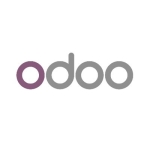What is our primary use case?
We use Monday.com to track all of our open projects.
We have multiple workflows that are separated onto their own boards, with one central board showing all of the projects and statuses using mirror columns. We have a board for items that are ordered readymade, a board for custom projects that require materials and assembly, and also a board for service requests.
We have recently implemented forms on our website to automatically create an item when a customer fills them out. When projects are ready, they are automatically sent to our scheduling board to complete the project.
How has it helped my organization?
I can't believe we ever got by without having Monday.com to manage our projects. Not only can we see jobs and statuses at a glance, but we are able to automate messages regarding backorders or other problems so nothing slips through the cracks. We had record sales numbers in 2021 and were able to handle the increased volume with a lower headcount that in previous years. We also spend less time looking for job folders and calling one another to check on project statuses since all of the information is available on Monday.com.
What is most valuable?
The automation is huge. We have about 25 employees across three different locations, so communication regarding projects has always been an issue. Now, notifications are sent to the salespeople about their projects with the click of a button. We also use automation to create new items on the scheduling page after they are marked as ready. This is a small thing, however, the couple of minutes it saves on every project amounts to a huge time saver.
The map locations are also a huge help when we are scheduling. Items are color-coded by group, so we can look for unscheduled items nearby and create efficient routes.
What needs improvement?
Sometimes automation is delayed, which can lead to duplicate items being created.
There are occasional outages, however, they are usually resolved quickly.
We also use the program to track our scheduling. Any kind of integration with scheduling software would be a great help.
As I mentioned, we have been implementing the forms, however, it would be great if we had the option to view the items created by the forms in that same form format.
I haven't tried the calendar integrations recently, however, it would also be great if a scheduled item could link to an Outlook calendar and also export all of the item information into that calendar item.
For how long have I used the solution?
We started using the product in October 2018.
What do I think about the stability of the solution?
Overall, the stability is great. There are occasional outages such as connectivity issues or delayed automations which can be an issue given how much we rely on it. These issues are usually resolved quickly and the Monday.com twitter account provides prompt updates on the problems they are experiencing and estimated resolution times.
What do I think about the scalability of the solution?
It is scalable, however, the data entry aspect is getting to be cumbersome as we grow.
Any integrations/automation to create new items can solve this in the future.
How are customer service and support?
We have had a few instances where we were having issues or just had some questions on functionality. Customer service is always responsive and helpful. We also follow the Twitter account so we know quickly when there are outages or other issues occurring.
How would you rate customer service and support?
Which solution did I use previously and why did I switch?
We did not have any kind of project management system in place prior to Monday.com. We recognized the need as we were spending so much time chasing papers and folders around the office.
How was the initial setup?
Most of the complexity came from figuring out how it would best serve our needs. Once I gained an understanding of the different columns and automations, the picture became clear and made for an easy setup.
What about the implementation team?
We implemented the system in-house. It is still something we continue to tailor and improve almost weekly. I recommend having at least one person in an organization understand the program and gather feedback to make it as efficient as possible.
What was our ROI?
We have cut at least one salary by implementing the system while increasing our sales. Based on our yearly rates, it is at least a 20X return.
What's my experience with pricing, setup cost, and licensing?
The pricing is certainly fair. We started with just five active users while we were in a beta phase and figuring out how it would work for us. We have since upgraded to ten active users. We don't even come close to hitting our automation threshold.
I love that we are able to have viewer-only members, so our whole organization can be subscribed and get updates without having everyone count against our total.
Which other solutions did I evaluate?
We considered using Netsuite and some other manufacturing software. The cost of such a system made it a nonstarter.
What other advice do I have?
Overall, Monday.com has been essential to our growth over the last couple of years. The setup can take some time, however, the ability to completely customize the system to the needs of your organization makes it well worth it.
Which deployment model are you using for this solution?
On-premises
Disclosure: My company does not have a business relationship with this vendor other than being a customer.

















